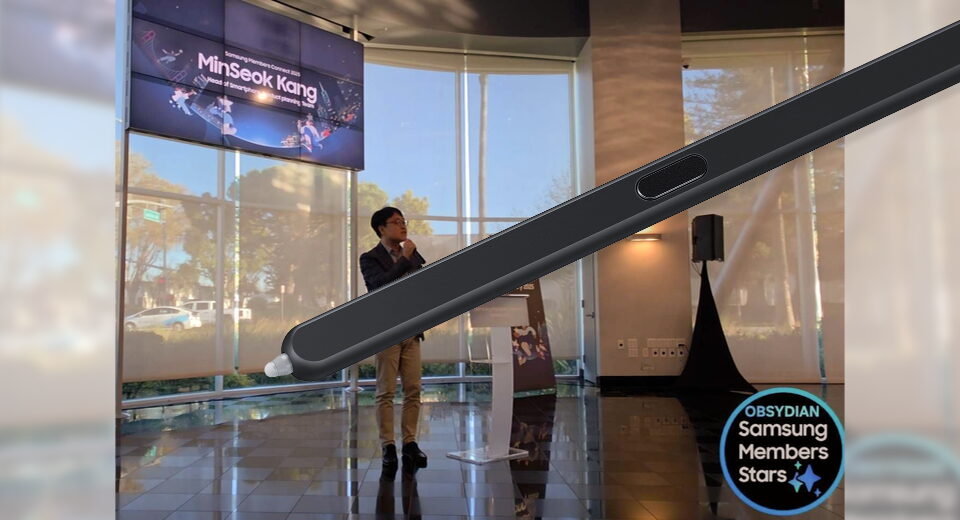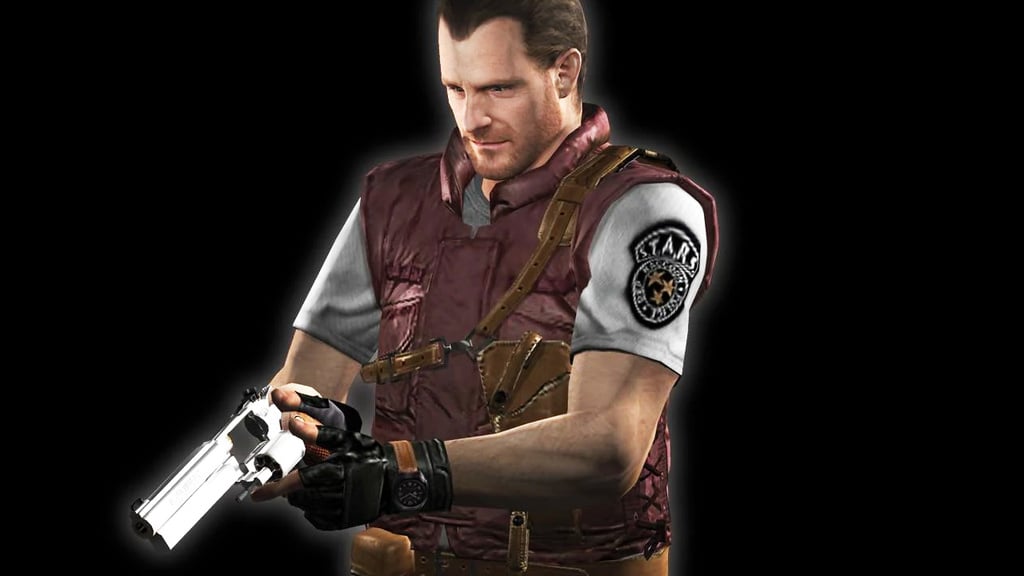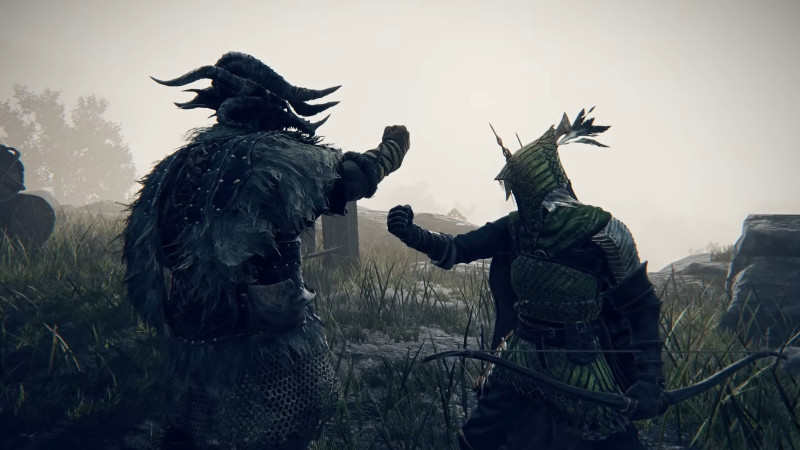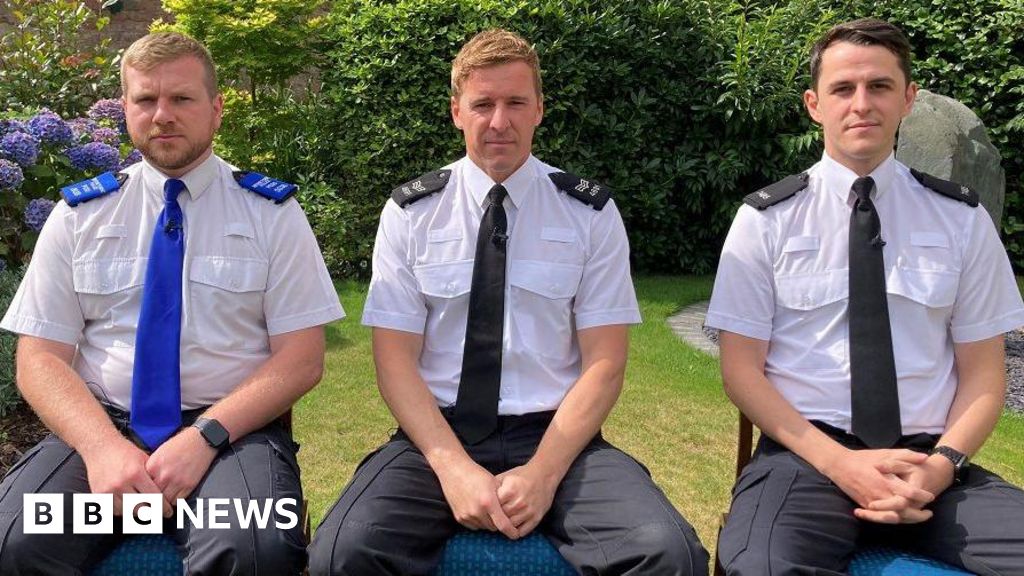Imported dogs 'posing risk to UK', RSPCA warns
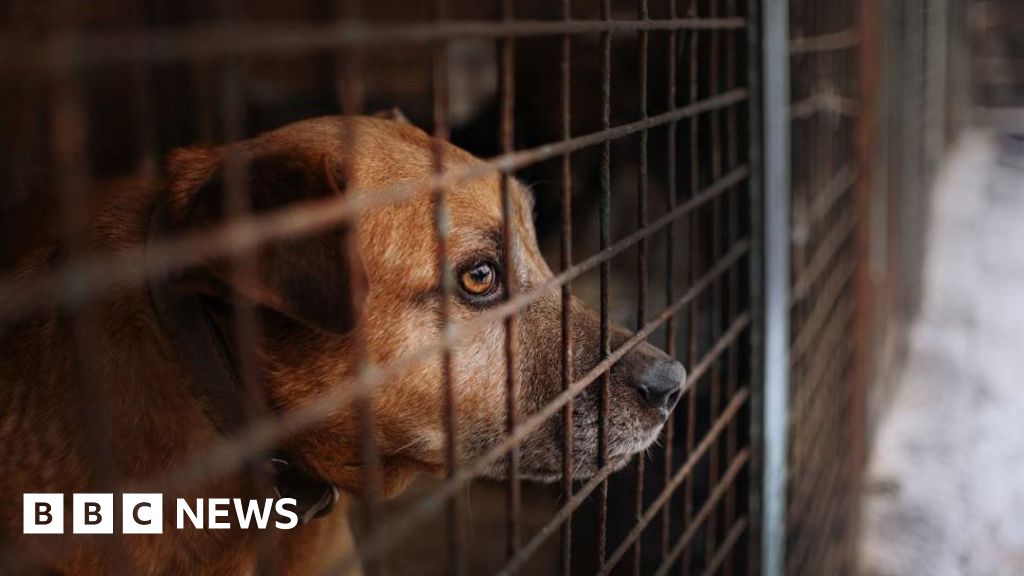
Imported dogs 'posing risk to UK', RSPCA warns
Kath Stanczyszyn, Victoria Archer & Alan HaslamEngland Longform Investigations
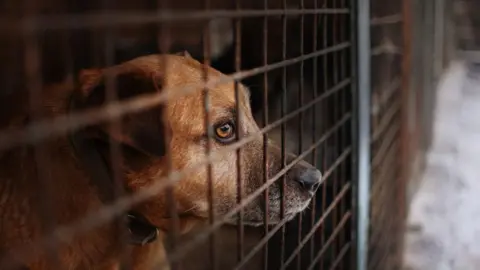 Getty Images
Getty ImagesA leading animal charity has called for all dog rescue organisations to be licensed amid growing concerns of behavioural issues and disease risks in imported pets.
Thousands of dogs are brought into the UK each year, many of which are being sold to owners via websites and social media posts without any significant matching process or assessment.
The BBC has spoken to numerous owners who have faced serious difficulties with dogs delivered to their door from countries such as Romania, Ukraine and North Macedonia, including infectious diseases and aggressive behaviour.
David Bowles, spokesman for the RSPCA, described the process as like a "Deliveroo for dogs" and urged the government to consider stronger regulation for the sector.
Currently, rescue organisations in Scotland must be licensed, but there is no such rule for England, Wales or Northern Ireland.
'Ticking time bomb'
Secret recording as part of a BBC investigation showed multiple rescues operating through social media were happy to provide a dog following a short phone call, completion of an application form and a video check of their property.
Analysis of 150 adverts on Facebook and a major online pet marketplace showed the majority were offering rescue dogs from Eastern European countries, with half suggesting dogs would be delivered to an owner's home in the UK.
Most are run by well-meaning dog lovers, following rules around transportation and importation paperwork.
But the lack of preparation and vetting for owners receiving previously unseen dogs straight to their door is causing concern among experts who say there is no way people can know the temperament of the animals.
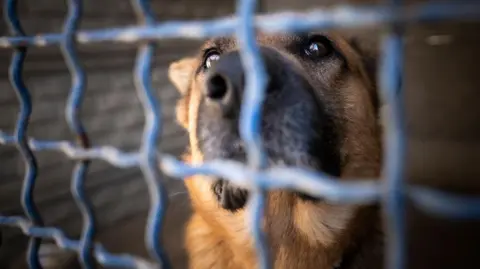 Getty Images
Getty Images
"The RSPCA's major concern is these dogs are essentially ticking time bombs - coming over, not being health tested," Mr Bowles said.
"Diseases are now coming in through these dogs. They're affecting not just the dogs that are being imported, they could also affect the dogs already in this country and their owners.
"They've almost set up a Deliveroo for dogs and that is a real problem."
Growing cases of disease
Scientists have been monitoring Brucella canis, a rare disease that can be passed to humans.
Transmitted through a dog's reproductive fluids, it can present in humans as a short-term fever with flu-like symptoms such as aching muscles but some may suffer longer-term complications such as bone and joint disease.
Before 2020 there were three known positive cases in dogs in the UK, but testing has increased and in 2024, 333 cases were being investigated, with at least one instance of it being contracted by a dog owner.
Trudy Cain from Alfreton, Derbyshire, discovered rescue dog Nola was Brucella-positive four months after she arrived from Romania.
She now faces rising vet and insurance bills and is worried about Nola's and her family's health, although she refused a vet's offer to put her to sleep.
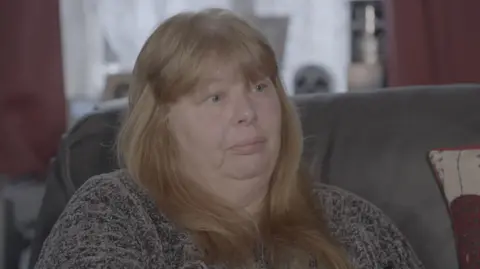
"My brain does not compute having a dog that looks healthy put to sleep," she said.
"It just breaks my heart, it's been so hard.
"I wanted to do a good thing and now I feel like I've done a bad thing."
Dr Stephen Woolley, a consultant in tropical medicine and medical microbiology at the Royal Liverpool University Hospital, said the risk of transmission from dogs to people was "very low", but described the disease as "under-studied and neglected".
Many vets recommend that a dog that tests positive for the illness should be put down, but there are also those who say it can be managed by taking precautions around disinfection.
Trading standards raid
Sian Keen agreed to take a pregnant rescue dog from Ukraine and within days of arriving Narla gave birth to 11 puppies.
But several weeks later, trading standards officers swooped on Sian's Somerset home and removed all 12 dogs over concerns they may have been imported with forged blood test documents.
As a precaution against rabies, Narla, her puppies and 19 dogs belonging to other people were quarantined in kennels.
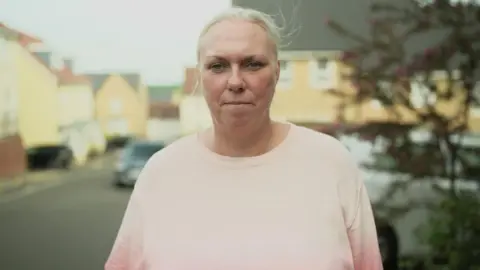
After three weeks of investigations the dogs were freed, but when Narla returned home her behaviour had changed dramatically and she attacked Sian and her 12-year-old son.
"She was just reactive in a way she had never been before, like she was an aggressive dog," said Sian.
"I'd been bitten down my arm, I was in so much pain. The bite went right through to the muscle."
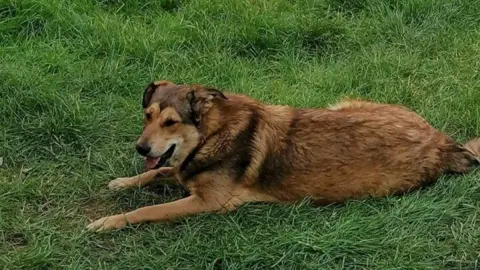 Sian Keen
Sian Keen
They felt they had no choice but to put Narla to sleep.
"There was just nothing we could do," said Sian. "Our intentions were completely and utterly for the right reasons. If I was looking for a dog now, I certainly wouldn't go to a rescue online."
The organisation that Sian had used, Paw Help UK, based in Burton-upon-Trent, Staffordshire, said it deeply regretted the stress caused and added animal welfare and public safety were its highest priorities.
It said it had not been aware documents had been forged and that they originated from a laboratory used on an emergency basis following the outbreak of the war in Ukraine.
Only one consignment arrived with false documents in 2022, it added, and that all dogs brought in before and since had had fully legitimate paperwork.
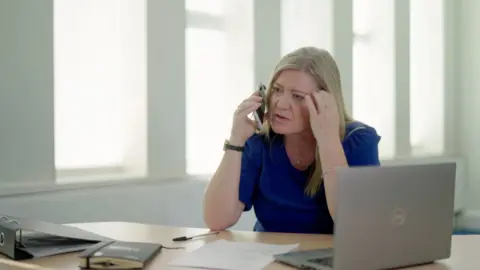
Government figures obtained by a Freedom Of Information request show 32,391 dogs entered the UK in 2024 as commercial imports, which includes many rescue dogs.
Some UK-based rescue organisations said the prevalence of dogs coming into the UK and being placed with owners who could not cope was putting extra pressure on the sector.
Emma Shaffery, of Forest Dog Rescue in Worcestershire, said: "We're basically having to mop up after rescues that aren't stepping up and taking responsibility for their dogs."
The charity takes in dogs from the UK and abroad, but insists every new adopter meets the dog first. There is then a cooling-off period before the new owner can take their dog home.
"It does blow my mind a little bit - you've seen a video and a few pictures and literally you adopt the dog, the dog's sent over and it could be dropped in to you at three o'clock in the morning," Emma said.
'Russian routlette'
Dr Rowena Packer, a dog behaviour specialist at the Royal Veterinary College, said she was worried many owners were being paired with unsuitable dogs.
Ms Packer said foreign rescue dogs might be traumatised from a long journey to the UK and could also suffer with early life trauma.
"The situation right now is we have a lot of really well-meaning people in the UK engaging in either adopting these dogs or being part of organisations that import them that really want to help," she said.
"I think it's a really big gamble as to what you're going to end up with because without clear information about lots of the elements of that dog's life and history, it's going to be difficult to match you with that dog. So it is a little bit Russian roulette here."
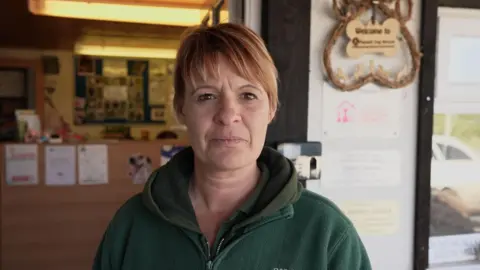
When asked by the BBC if there were plans to introduce licensing for rescue organisations, the government did not comment specifically.
A spokesperson for the Department for Environment, Food and Rural Affairs (Defra) said animal rescue organisations "must meet statutory welfare requirements".
The spokesperson said members of the public could check if a rescue was a member of the Association of Dogs and Cats Homes, which had "set clear standards".
"The government is developing an overarching approach to animal welfare," they added.
Rescue Roulette: Dogs from Abroad is on iPlayer now and BBC One in the West and East Midlands at 20:30 BST on 28 JulyRelated internet links
What's Your Reaction?
 Like
0
Like
0
 Dislike
0
Dislike
0
 Love
0
Love
0
 Funny
0
Funny
0
 Angry
0
Angry
0
 Sad
0
Sad
0
 Wow
0
Wow
0















